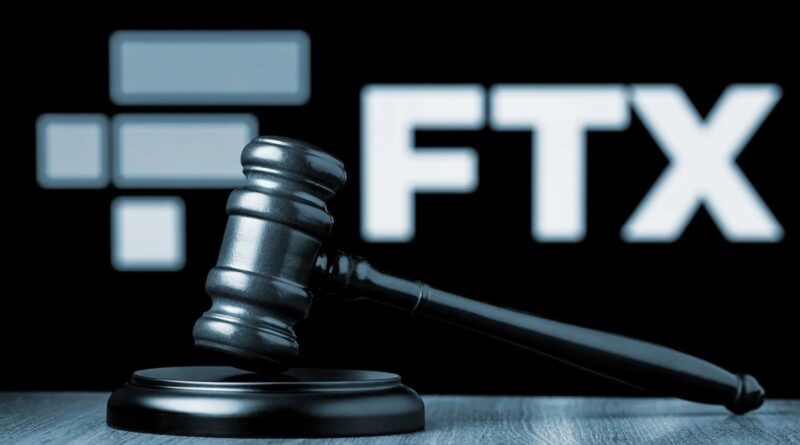FTX Sues NFT Stars and Delysium Over Missing Token Delivery
FTX Takes Legal Action Against NFT Stars and Delysium Over Missing Tokens
The collapse of FTX might be old news, but the ripple effects are still playing out. In the latest twist, FTX has filed a lawsuit against two blockchain companies—NFT Stars and Delysium—claiming they failed to deliver millions of dollars’ worth of digital tokens that were previously paid for.
Let’s break it down.
What Happened Between FTX, NFT Stars, and Delysium?
FTX, once a major cryptocurrency exchange, is now under bankruptcy proceedings. As part of the process of recovering as many assets as possible, its lawyers are tracking down payments made before the company collapsed.
One of those payments? Money sent to NFT Stars and Delysium.
According to the lawsuit:
- In August 2021, FTX handed over $900,000 to NFT Stars.
- Delysium received $2 million from Alameda Research (which was linked to FTX) in 2022.
What’s the problem? FTX alleges that neither company delivered the agreed-upon crypto tokens they were paid for.
Why Is This Important?
In the volatile world of crypto, trust is everything. If a company pays for a product—whether that’s a digital token or a piece of software—it’s expected that they receive it. Not delivering the contracted assets not only causes financial loss but also slows down efforts by FTX’s new leadership to repay users.
So, why are we still hearing about deals made years ago?
Because bankruptcy courts want every dollar they can find. That means tracking down any missed or incomplete transactions, especially large ones like these.
What Are These Tokens, and Why Do They Matter?
The lawsuit says these were utility or in-game tokens connected to upcoming blockchain projects.
Let’s take Delysium as an example. It’s building a metaverse game—a digital universe where players interact using avatars, collect digital assets, and use game tokens for purchases. These tokens aren’t just for fun; they represent real value. People invest in these projects expecting returns.
So when FTX invested $2 million in Delysium tokens, it wasn’t a small favor. It was a business decision based on expected delivery.
NFT Stars, on the other hand, was involved in tokenized digital assets, likely offering some form of exclusive NFT-backed project or marketplace utility. FTX says it never received those tokens either.
Where Do Things Stand Now?
FTX’s legal team is suing both firms for:
- Breach of contract
- Unjust enrichment—claiming the companies held onto money without providing anything in return
- Fraudulent transfer—suggesting that these funds were taken while FTX was on the edge of financial collapse
They’re asking the court to make NFT Stars and Delysium return the funds.
If they win, those recovered funds could go back into the pool used to repay millions of FTX customers still waiting to see even a portion of their lost money.
How Did FTX End Up in This Situation?
Everyone in the crypto world remembers the fall of FTX. Once valued in the billions, the platform crumbled under financial mismanagement, alleged fraud, and risky decisions by its leadership, including founder Sam Bankman-Fried.
During its boom, FTX was involved in dozens of deals—investments in crypto startups, payments for upcoming digital assets, and high-stakes bets on future platforms.
Now that FTX is in the hands of a new CEO working through bankruptcy, it’s time to clean house. That includes tracking where the money went and whether FTX got anything in return.
What Does This Mean for the Crypto Industry?
This lawsuit is more than just a legal battle between one bankrupt exchange and two blockchain projects. It’s a signal to the crypto world.
Here’s why it matters:
- Accountability is growing. Even in a decentralized space, you can’t take millions and vanish without consequences.
- Due diligence matters. As more courts and regulators look closely at deals like these, companies will likely be more cautious about how they handle funds.
- Investors are watching. If projects like Delysium and NFT Stars don’t live up to promises, it affects their reputation and fundraising capabilities.
Could This Happen to Other Firms?
Yes. And it already has.
FTX has been digging through records and is actively filing lawsuits against other companies and individuals who either owe money or failed to meet their end of a deal.
Simply put, the new management is in recovery mode, doing everything it can to collect and redistribute assets.
If any company took payments and didn’t deliver what was promised, it could find itself on the receiving end of a similar lawsuit.
Think About It This Way
Imagine paying for a truckload of supplies for your business. The supplier takes your cash and disappears. That’s what FTX says happened with these token deals—they paid, waited, and never received anything.
Now they’re calling for a refund through the courts.
So, What’s Next?
This case will now work its way through bankruptcy proceedings. NFT Stars and Delysium will have a chance to respond in court. If they can prove they delivered—or had good reasons for not delivering—they might avoid penalties.
Otherwise, they may have to return the funds.
Should You Care If You’re Not Invested?
Even if you’ve never heard of NFT Stars or played Delysium’s game, this still matters to anyone watching the crypto space.
Why? Because trust, transparency, and accountability are the foundation of any financial system—digital or traditional.
If Web3 wants to grow, it has to show the world that everyone follows the rules and delivers what’s promised. Lawsuits like this help remind companies that even in a decentralized world, there are still laws to follow.
What Can We Learn From This?
If you’re in crypto—double-check your transactions. Whether you’re sending tokens or receiving them, keep records. Know who you’re partnering with.
If you’re outside crypto—this is a real-world example of why regulation is becoming more common in blockchain spaces. It’s not just about technology anymore—it’s also about trust and enforcement.
Questions to Ask Yourself:
- Would you know if a company you invested in actually delivered on their project?
- Do you read the fine print when tokens or digital assets are promised?
- If a deal goes bad, are you confident you could prove it—or get your money back?
Final Thoughts
FTX’s legal fight against NFT Stars and Delysium is a small piece of a much larger puzzle. As the fallen crypto empire tries to recover, these lawsuits highlight just how tangled and unregulated the space has been.
Moving forward, expect more headlines like this—and more companies being held accountable for the millions flowing through Web3 projects.
Stay smart. Stay informed. And always know where your money is going.









